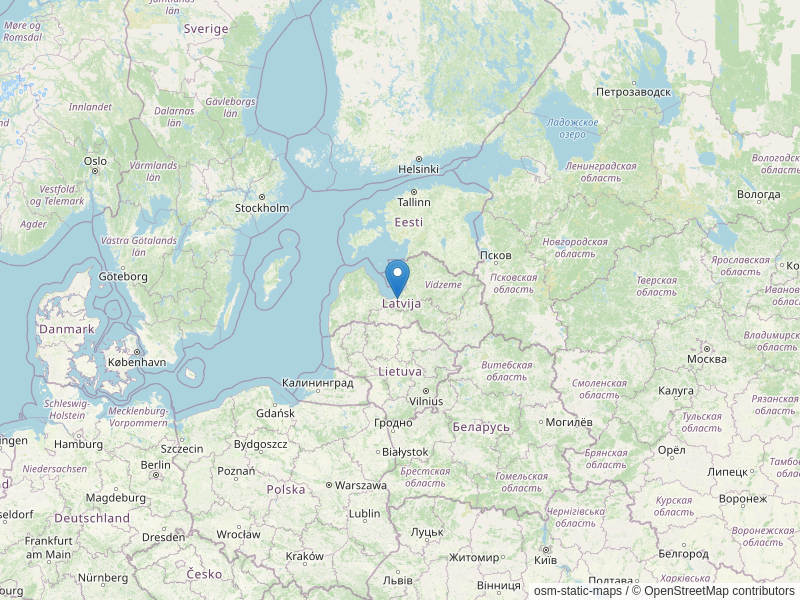Other Organisations

A data base for searching various types of funding opportunities for students, graduates, and post-docs is available at www.funding-guide.en. In addition to DAAD offers, it also provides an overview of grants awarded by an abundance of other organisations.
- Friedrich Ebert Foundation
Affiliated with the Social Democratic Party of Germany (SPD). It supports undergraduate, graduate and doctoral studies. More information can be found here. - Friedrich Naumann Foundation
Affiliated with the Free Democratic Party (FDP). Funding for diploma, bachelor’s, and master’s degree programmes. The minimum funding period is two semesters – a final application is possible in the pen-ultimate semester before graduation. More information can be found here. - Hans Seidel Foundation
Affiliated with the Christian Social Union (CSU) in Bavaria. Funding is only available to students in their first degree programme who have at least 4 semesters left until graduation. You can find more information here. - Heinrich Böll Foundation
Affiliated with the party Bündnis 90 / Die Grünen. For students from the Baltic states, funding is available for MA programmes; the application is generally possible before taking up one’s studies. Those who have a high school diploma from Germany or a German school abroad can receive a scholarship for their bachelor studies. More information can be found here. - Konrad Adenauer Foundation
Affiliated with the Christian Democratic Union (CDU). Supports undergraduate, graduate as well as doctoral studies. More information can be found here.
- Avicenna Student Service
Support for Muslim students. Applicants must have at least 5 semesters of regular study time left at the time of application. It is not possible to apply after starting a Master’s programme. More information can be found here. - Cusanuswerk
Support for Catholic students in undergraduate, graduate, and master’s degree programmes from the time of enrollment. You can find more information here. - Ernst Ludwig Ehrlich Student Service
Support for Jewish students. Applicants must have at least 5 semesters of studies remaining at the time of application. Funding is available for students in bachelor and four-semester master programmes. More information can be found here. You can find more information on doctoral funding here. - Villigst Protestant Student Union e.V.
Support for Protestant students with EU citizenship in their first-degree programme (e.g. BA). Non-Protestant applicants or applicants whose church does not belong to the Association of Christian Churches (ACK) can apply if they submit an informal explanation of their application. You can find more information here. - Catholic Academic Exchange Service: Eastern Europe Programme
The Catholic Academic Exchange Service (KAAD) is the scholarship agency of the Catholic Church in Germany. The Eastern Europe Programme is aimed at students, PhD students and post-docs who wish to study or conduct a specific research project in Germany. Particular support is given to projects that contribute to reconstruction and democratisation processes in Europe. Further information is available here.
- Alexander von Humboldt Foundation (AvH)
The Alexander von Humboldt Foundation offers research fellowships for highly qualified post-doctoral foreign scientists of all nations and disciplines. The fellowships are intended for implementing an independent research project. They provide funding for research stay in Germany of 6 to 12 months, with a possible extension. Information can be found here. - Alfred Toepfer Scholarship Programme
The Alfred Toepfer Fellowship is aimed at students and doctoral candidates from Central and Eastern Europe under the age of 30 who aim to complete an academic degree higher than a bachelor’s degree, e.g. postgraduate or doctoral studies at a university in Germany. Likewise, students and doctoral candidates from Germany can apply to funding for studies or research in Central or Eastern Europe for a period of up to one year. The programme is aimed at students of the humanities and social sciences, performing and visual arts, music, architecture, and agricultural and forestry sciences. Further information can be found here. - Baltic-German University Liaison Office
The Baltic-German University Liaison Office offers grants for small-scale academic projects of up to 5000 Euros. The projects should support collaboration between Germany, Lithuania, Latvia, and Estonia. Application is possible twice per year – in March and October. More information is available here. - Bavarian mentoring initiative for German schools abroad and partner schools (BayBIDS)
BayBIDS awards scholarships to excellent graduates of German schools abroad and their partner schools who wish to start their studies in Bavaria. The aim is to make it easier to start one’s studies as well as to give credit for the organisational and financial efforts linked to moving abroad. You can find more information here. - Copernicus e.V.
Copernicus e.V. awards scholarships for one semester of studies followed by an internship in Hamburg. Students of the humanities, the sciences, law, economics, political sciences, and several other fields are welcome to apply. Application deadlines are March 1 and September 1. Further information can be found here. - German Federal Environmental Foundation (DBU)
The DBU offers two types of grants: First, doctoral scholarships are offered for graduates who wish to pursue a PhD at a German university. Second, the CEE scholarship supports individuals from Central and Eastern European countries including Estonia, Latvia, and Lithuania whose university degree was completed not longer than 3 years ago and who wish to conduct research in Germany for 6 to 12 months on an environmental topic. The scholarship is open to graduates of all disciplines. Further information can be found here. - Theodor-Heuss-Kolleg (Robert Bosch Foundation)
Theodor Heuss Fellows supports young people who wish to take on democratic responsibility and to become politically or socially involved in their home countries. Each year, the Kolleg supports the participation of up to 100 selected students from Germany as well as from Central and Eastern European countries. It organizes international summer schools and provides support for the best project ideas. The application deadline is mid-March; further information is available here. - Hertie Foundation
The Hertie Foundation aims to create incentives for change in the areas of migration, education, and European integration. It provides financial support to committed young persons with convincing academic and professional performances. Further information on their scholarships is available here. - Hans Böckler Foundation
Hans Böckler Foundation is affiliated to major trade unions in Germany. It awards scholarships to doctoral students admitted to a programme in Germany, and to first-year students from low-income families. - Hermann Niermann Foundation / Julius Maximilians University Würzburg
The Julius-Maximilians-Universität Würzburg (JMU) awards scholarships from funds of the non-profit Hermann Niermann Foundation. They are intended for specific research, training visits, further education, and life-long learning at the Institute for German Philology at JMU. Scholarships can be granted to students, PhD students, or scholars enrolled or affiliated to a degree, a PhD, or a post-doc programme. More information can be found here. - International Parliament scholarship by the German Parliament
The German Parliament, in cooperation with the Free University Berlin, the Humboldt University of Berlin, and the Technical University Berlin, award scholarships to young university graduates from the Baltic states and a number of other countries. The scholarships allow each year from March 1 to July 31 to conduct an internship in the German Parliament. Applicants should have a university degree and have German language skills of at least level B2 of the CEFR. More information can be found here. - Foundation of the German Economy
The foundation supports students and PhD students of all disciplines and at all types of universities. Students can apply through the regional liaison lecturers; doctoral students should apply through the Klaus Murmann Student Support Service. More information can be found here. - Prof. Joachim Lenz Foundation
The Prof. Joachim Lenz Foundation arranges one-year internships for graduates of foreign universities who have completed a technical study programme and wish to continue their education in a German company. The internship in Germany allows to develop one’s personal and professional education and to get first-hand insight into German corporate culture. The aim is to enrich local companies with newly awarded knowledge once the interns return to their home countries. You can find more information here. - Study Foundation of the Berlin House of Representatives
The Study Foundation of the Berlin House of Representatives supports young scientists of all disciplines from France, Great Britain, the USA, and all countries that were once part of the Soviet Union (i.e. including Latvia, Lithuania and Estonia), who wish to use research facilities in Berlin. The fellows spend a year gaining academic experience in Berlin and getting to know culture, lifestyle, and inhabitants of the city. Further information can be found here. - German National Academic Foundation
Funding either by proposal or self-application, various programmes. You can find more information here.






